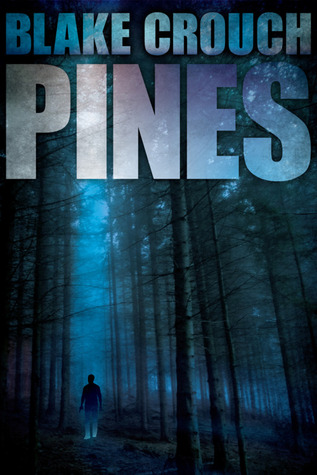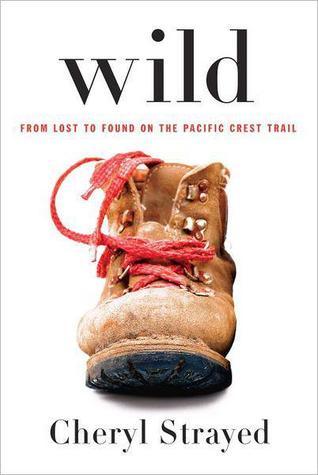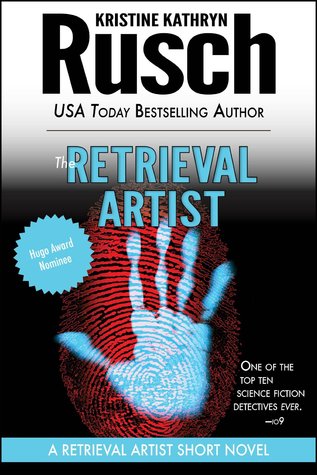
Rating: ★ ★ ☆ ☆ ☆
Date Read: April 25 to 27, 2015
Read Count: 1
Recommended by: book club’s choice
Recommended for: people who miss Twin Peaks
This is Twin Peaks with a dollop of The X-Files and a dash of The Truman Show, and the writing reflects its inspirations in that it’s fast-paced and cinematic. In another week or two, this book will become a show, which doesn’t surprise me at all because the writing is made for the screen.
The story begins on a strong note with Ethan Burke waking up in the middle of a forest with a splitting headache and not recalling much about himself or anything of his life. He makes his way into a small idyllic town hoping to find answers, but no one seems to know who he is or how he came to town. He vaguely recalls being in a car accident, and the killer headache and injuries on his body seem to confirm it, but there’s something strange about this town, Wayward Pines.
All the houses are brightly colored and perfect. They sit on perfectly manicured lawns, and they all resemble each other, as though a suburban neighborhood from a 1950s sitcom has been preserved, like a little piece of Americana that didn’t change with the times. And the streets are too quiet. And the people seem like they’re willing to help, but they come off as evasive when questioned about the town. No one Ethan meets would give him a straight answer. They all seem to be in league with each other, save for one–Beverly. She tries to help as best she could because she, like Ethan, knows there’s something wrong with this place.
As he makes his way around searching for answers, Ethan slowly recalls certain things about himself. He recalls having a wife and son in Seattle and that he’s a Secret Service agent sent on a mission to find two other agents who had gone missing after being sent to Wayward Pines. He tries to get calls out to his family and SAC, but none go through. He tries to leave, but finds that there’s no way out of town. The Sheriff is adamant about getting in his way, and the nurse is adamant about keeping him in the hospital. It seems like almost everyone is working against him.
Memories come back to Ethan slowly in pieces, but the pieces don’t fit together. There are too many blank spots, and the people who run Wayward Pines are determined to keep Ethan from digging further. What is Wayward Pines really and why is no one trying to get out?
This book combines two of my biggest fears: kooky small towns and being stranded in kooky small towns. It’s just too bad that it turned out to be such a dud. It started out great though. The first 30% was gripping and so intense that I left a dinner early on Saturday night just so I could continue reading all through the night, but then the mystery started to unravel and lose its grip on me as soon as Ethan recalled memories from his past. There’s just something about his characterization and PTSD that I didn’t find altogether believable, and the writing took on a overly dramatic tone whenever he relived a specific painful memory. The story continued to unravel further for me when Ethan’s wife Theresa was introduced. At first, her POV was interesting and added to the intensity of the mystery, but then it fell apart rapidly. It’s supposed to heighten the suspense and ramp up the mystery, but there were too many things about it I found not at all believable, more on this further below.
I like primetime TV dramas just fine. I loved Twin Peaks and The X-Files, and I recently finished Fringe (X-Files for the new generation) and all six agonizing seasons of Lost. So I have no problem following along mind-boggling, nature-bending, physics-scoffing, over-reaching mysteries that don’t quite satisfy or end well. What those shows had, and this book lacks, is strong believable characterization–that still resonate with me to this day–and twisted but fascinatingly explained science–that I still bounce around in my head from time to time. While Pines has echoes of these things embedded in the story, they’re just that–echoes, derivatives. They don’t offer anything new to or expand on familiar themes and ideas; they just regurgitate. The last chapter of Pines, aka the huge info-dump that’s supposed to explain everything, just doesn’t pull the story together. While it does explain most of the weirdness in Wayward Pines, it doesn’t make much sense in the context of the world in which the town exists.
That said, this was an interesting mystery and I liked the beginning a lot. I think many others will like this book too, depending on what mood they’re in and what they’re looking for in a mystery. Just don’t think too hard or get caught up in the details like I did, and you’ll be fine.
[ETA]
So it’s been brought to my attention that this book might have started out in life as self-published (source?). If that’s really the case, then it sure does explain a lot.
*
* *
* * *
* * * * all spoilers below * * * *





You must be logged in to post a comment.